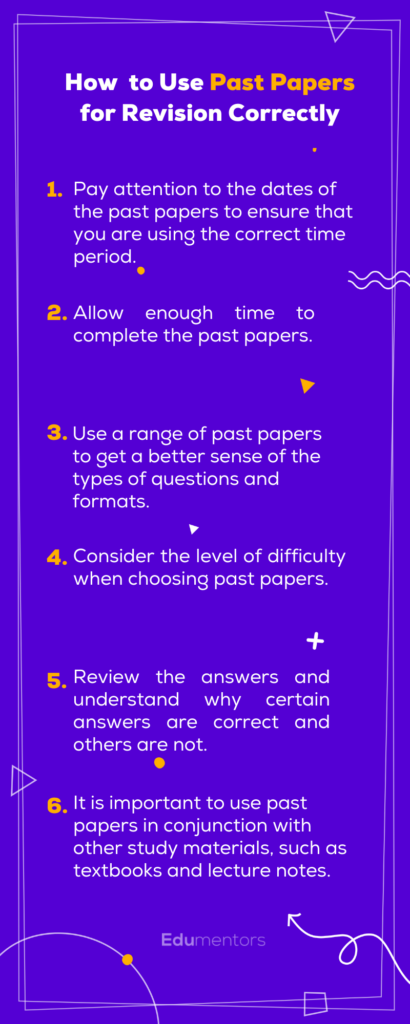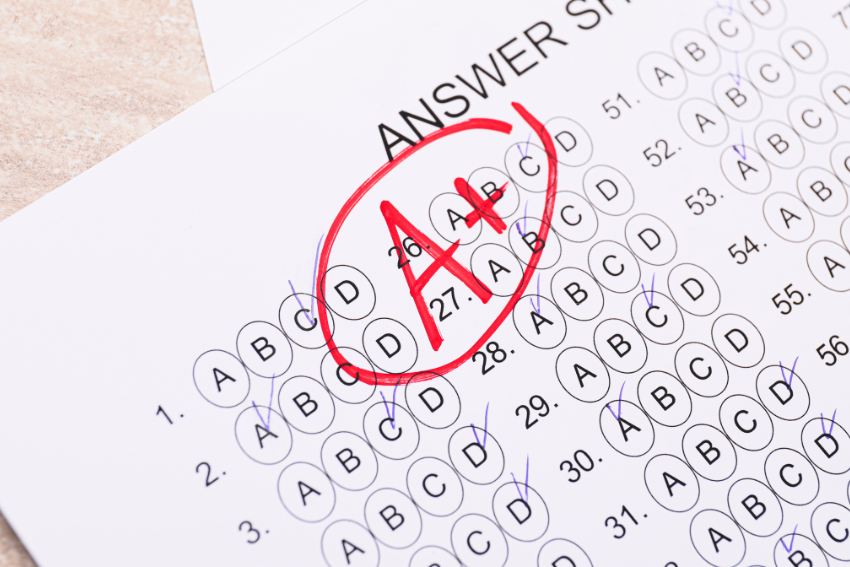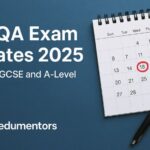If you’re like most GCSE Maths students, you’re probably always on the lookout for new ways to improve your skills and prepare for your exams. One of the most effective ways to do this is by working through past papers. 📚 Not only do they provide a wealth of practice problems, but they also give you a sense of what to expect on exam day.
In this article, we’ve compiled a list of GCSE Maths past papers for you to work through. Whether you’re just starting your GCSE Maths journey or you’re nearing the end, these papers are a valuable resource that can help you succeed. 💪
GCSE Maths Foundation
AQA
Foundation Paper 1
| Question Papers | Mark Scheme |
| November 2020 | November 2020 |
| November 2021 | November 2021 |
| June 2022 | June 2022 |
| June 2023 | June 2023 |
Foundation Paper 2
| Question Papers | Mark Scheme |
| November 2020 | November 2020 |
| November 2021 | November 2021 |
| June 2022 | June 2022 |
| June 2023 | June 2023 |
Pearson Edexcel
Paper 1 GCSE Maths Foundation
| Question Papers | Mark Scheme |
| November 2020 | November 2020 |
| November 2021 | November 2021 |
| June 2022 | June 2022 |
| June 2023 | June 2023 |
Paper 1 GCSE Maths Higher
| Question Papers | Mark Scheme |
| November 2020 | November 2020 |
| November 2021 | November 2021 |
| June 2022 | June 2022 |
| June 2023 | June 2023 |
OCR
GCSE Maths Foundation Paper 1
| Question Papers | Mark Scheme |
| November 2020 | November 2020 |
| November 2021 | November 2021 |
| June 2022 | June 2022 |
| June 2023 | June 2023 |
GCSE Maths Foundation Paper 2
| Question Papers | Mark Scheme |
| November 2020 | November 2020 |
| November 2021 | November 2021 |
| June 2022 | June 2022 |
| June 2023 | June 2023 |

FAQs:
Do Past Papers Really Help?
✅ Yes, past papers can be a helpful resource for preparing for exams. Past papers provide a way for you to practice and become familiar with the format of the actual exam. They can help you identify areas where you may need to focus your studies.
Past papers can also be helpful in providing a sense of the difficulty level and content coverage of the exam. Additionally, they can help you become more comfortable and familiar with the exam format and process. This can help reduce exam anxiety.
It’s important to note that while past papers can be useful study tools, they should not be the only resource used for exam preparation. It’s also important to review course materials and attend lectures and review sessions.
Are Past Papers the Best Way to Revise?
As mentioned above, past papers can be a useful tool for revision. However, past papers should not be the only resource. It’s important for students to also review Maths concepts and techniques, practice a variety of different types of problems,
A well-rounded revision plan should include a variety of resources and activities. For instance, reviewing notes and textbooks, and practising problems. Check out some revision methods to try out. This can help you build a strong foundation of knowledge and skills and feel more confident and prepared for your GCSE Maths exam.
How Early Should One Start with GCSE Past Papers?
It is generally a good idea to start working with GCSE past papers at least a few months before your exams. This will give you enough time to complete a variety of past papers. There is no “too early” or “too late” though. You know yourself best. Hence, make your own revision plan that fits YOU and YOUR schedule.
Starting early also allows you to gradually build up your skills and stamina, rather than trying to do all of your exam preparation in a short period of time. It can be helpful to set aside specific times each week to work on past papers, rather than trying to do them all at once.
It is important to remember that past papers should be just one part of your exam preparation and not the only resource you use. Be sure to also study the current syllabus and any other materials provided by your teacher. Don’t be afraid to seek additional assistance if needed. 🫂
What are Some Common Mistakes that Students Make When Working on GCSE Maths Past Papers?
❌ Not understanding the exam format and requirements. It is important to familiarise yourself with the format of the GCSE exams. This includes the types of questions you will be asked and the marking scheme. This will help you understand what is expected of you.
❌ Not practising enough. To improve your performance in the exams, it is important to practice past papers regularly. This will help you become familiar with the types of questions you will be asked. Also, this will improve your speed and accuracy.
❌ Not reviewing and analysing your mistakes. When practising past papers, it is important to carefully review and analyse any mistakes you make. This will help you identify any areas where you need to improve and develop a stronger understanding of the material.
❌ Not practising under exam conditions. To prepare effectively for the exams, it is important to practice past papers under exam conditions. This means simulating the exam environment as closely as possible, including timing yourself. It’s better to avoid the use of aids or notes.
❌ Not seeking help if needed. If you are struggling with a particular topic or concept, don’t hesitate to seek help from a teacher, tutor, or study group. Use anything that’s available!
How Can Students Use Past Papers to Identify Strengths and Weaknesses?
The more past papers you do, the better you understand what topics you are struggling with. For example, if you consistently miss questions on algebraic expressions or geometry, you know what to practice more!
To identify areas of Maths they need to review, you can set aside time to work through past papers and take note of any questions you struggled with. You can then review relevant Maths concepts and try solving the questions again to see if you can improve their performance. This helps you identify areas where they need more practice to build a stronger foundation of knowledge and skills.
Another way for you to use past papers to identify areas of Maths that you need to review is by using resources such as textbooks or online tutorials. This can help you understand any concepts or techniques that you are having difficulty with. Working with a tutor or teacher can also be helpful, as they can provide personalised guidance and feedback on areas that you need to work on.
What Strategies Can Students Use to Approach and Solve Difficult Maths Questions from Past Papers?
There are a few strategies that you can use to approach Maths problems:
📌 Break the problem down into smaller parts. Complex Maths problems can often be overwhelming. Hence, it can be helpful to break them down into smaller, more manageable pieces. This can make it easier to identify the key information and steps needed to solve the problem.
📌 Look for patterns or connections. Many Maths problems involve finding patterns or making connections between different pieces of information.
📌 Use any given information to make educated guesses or eliminate incorrect options. If you are stuck on a problem, you can try using the information given to make educated guesses or eliminate incorrect options.
📌 Seek help or clarification. If you are really struggling with a problem, you should not be afraid to seek help or clarification. This could involve asking a teacher or GCSE maths tutor for guidance, consulting a textbook or online resource, or seeking the help of a classmate.
📌 Practice and review. The more you practice and review Maths concepts and techniques, the more comfortable and confident you will become with solving difficult ones!
What grade is 80 percent in GCSE maths?
In the GCSE grading system, an 80% score typically falls within the range of a Grade 7 or Grade 8. The exact grade can vary slightly depending on the specific year’s grade boundaries set by the examination board. Grade boundaries can shift annually based on the overall performance of students and the difficulty of the exam.
Grade 7 is generally considered an A, while Grade 8 is an A*. Therefore, achieving 80% in GCSE Maths is indicative of high performance, likely resulting in a Grade 7 or Grade 8.
Does past papers help you pass GCSE maths?
Yes, practising past papers is highly beneficial for passing GCSE Maths. Here are some key reasons why they help:
- Familiarity with Exam Format: Past papers help students become familiar with the format and structure of the exam, including the types of questions that are commonly asked and the way they are phrased.
- Time Management: Working through past papers under timed conditions helps students develop effective time management skills, ensuring they can complete the exam within the allotted time.
- Identifying Weak Areas: By practising past papers, students can identify topics or types of questions they find challenging, allowing them to focus their revision on these areas.
- Understanding Marking Schemes: Reviewing mark schemes alongside past papers helps students understand how marks are awarded, enabling them to tailor their answers to meet the examiners’ expectations.
- Boosting Confidence: Regular practice with past papers can boost students’ confidence as they become more comfortable with the exam process and their ability to answer the questions correctly.
- Improving Exam Technique: Past papers help students improve their exam technique, such as understanding how to approach different question types and allocating their time effectively.
Overall, incorporating past paper practice into a revision schedule can significantly enhance a student’s preparedness for the GCSE Maths exam, increasing their chances of achieving a higher grade.
What are the 3 GCSE maths papers?
The GCSE Maths examination is typically divided into three separate papers, each assessing different aspects of mathematical knowledge and skills. These are:
- Paper 1: Non-Calculator: This paper requires students to solve mathematical problems without the use of a calculator. It tests mental arithmetic skills and the ability to work through problems using basic mathematical principles.
- Paper 2: Calculator: This paper allows the use of a calculator and covers a wide range of mathematical topics. It assesses students’ ability to apply mathematical methods and use a calculator to solve more complex problems.
- Paper 3: Calculator: Similar to Paper 2, this paper also permits the use of a calculator and tests students on various mathematical concepts. The questions may involve more applied and problem-solving tasks, requiring the use of a calculator for efficient and accurate solutions.
Each paper typically lasts 1 hour and 30 minutes, and together they comprehensively assess a student’s mathematical ability across different types of problems and topics.








